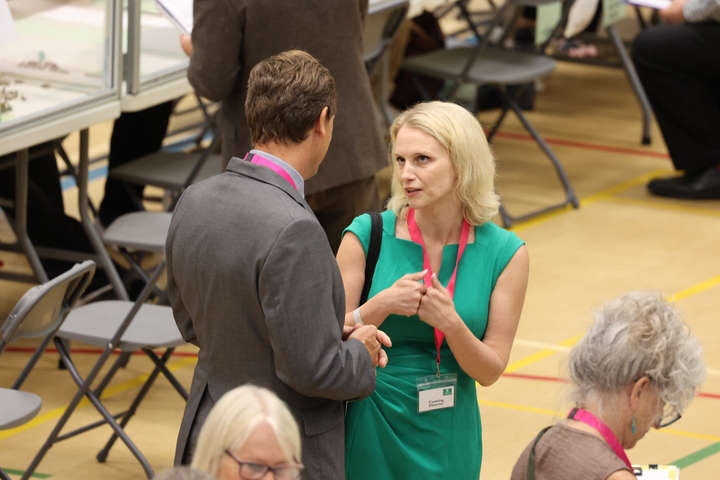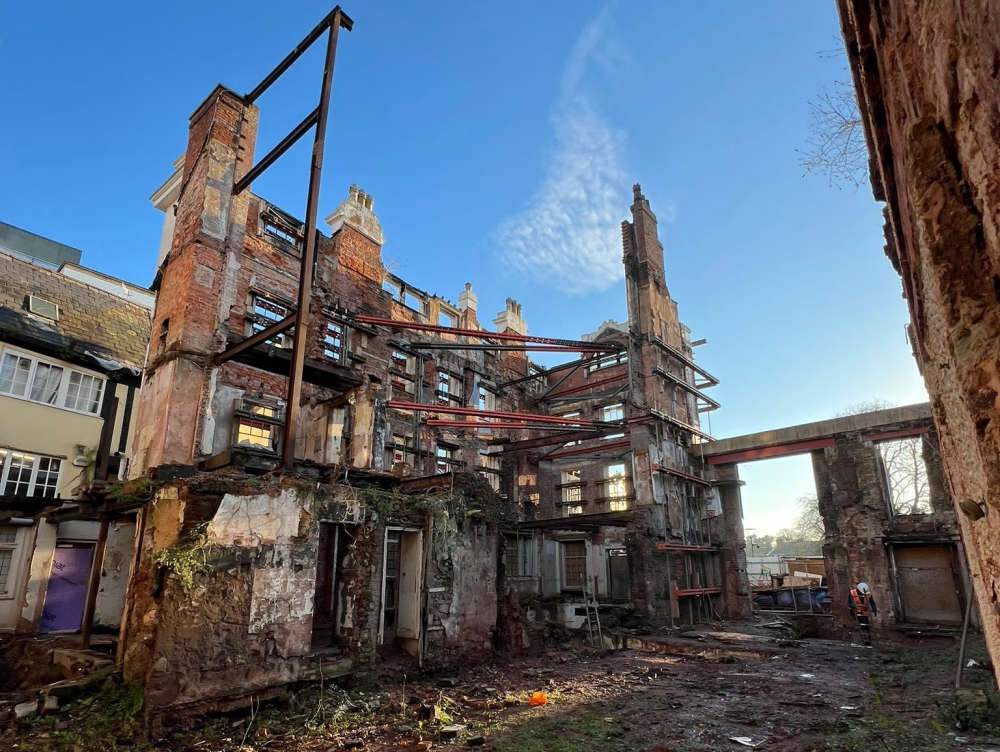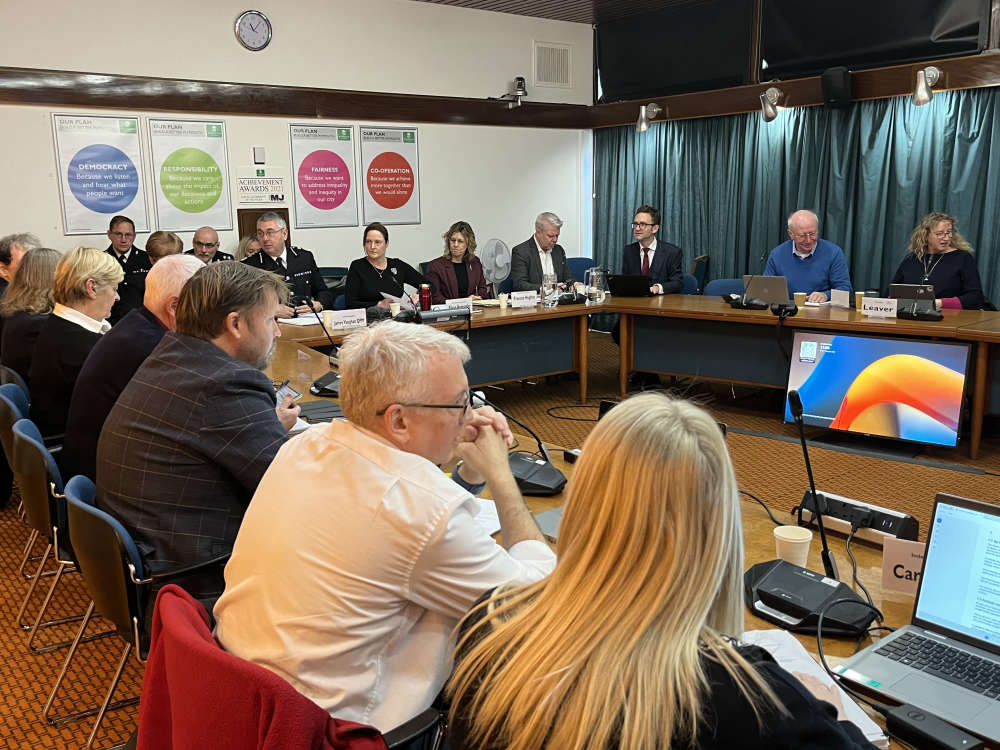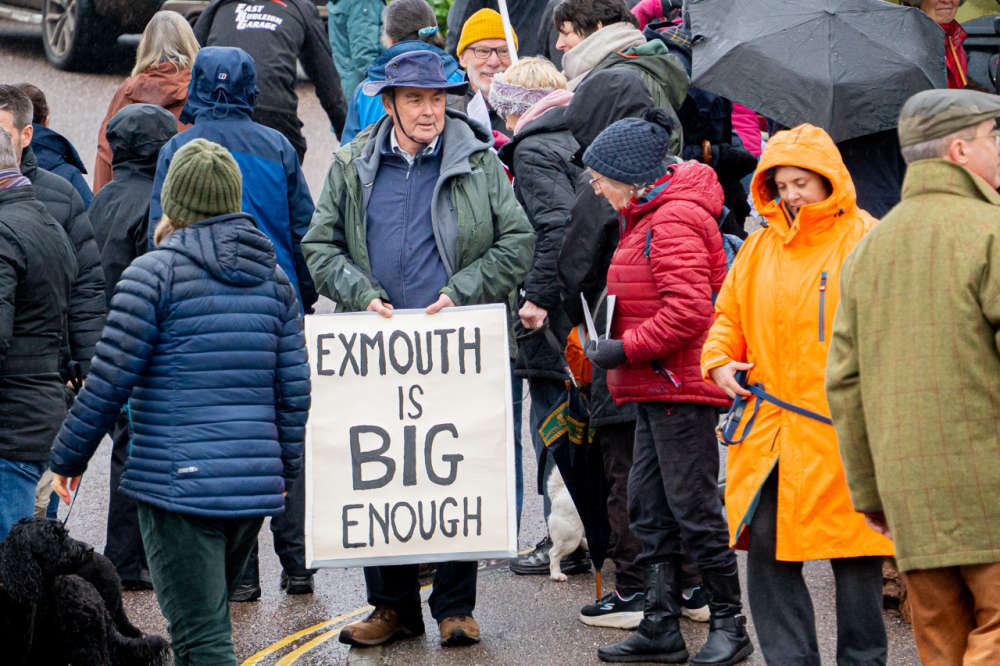
City Council will keep a leader and cabinet system
Plymouth has voted against the introduction of a directly elected city mayor after 52 per cent of people said No in yesterday’s referendum.
The public has chosen to keep the current leader and cabinet system in a ballot which saw just 19.11 per cent of the population turn out to vote.
Deflated lead campaigner for change, Angus Forbes of the Mayor for Plymouth team, said: “Democracy has been trampled on.” The Plymouth Knows Better group, who fought to keep the status quo, said the public had seen through this “failed, costly experiment”.
The result was announced around 1.40am this morning, around three hours after counting began at Plymouth’s Life Centre.
Labour leader of the council Tudor Evans was not in attendance.
Some 38,015 people from the city chose to cast their vote from the 198,932 who were eligible.
There were 19,840 votes cast for leader and cabinet model and 18,044 votes for the directly elected mayor structure.
Plymouth Knows Better, which included prominent members of Plymouth City Council’s Labour party, said: “Plymouth really does know better. People saw straight through this failed, costly experiment and they made that known at the ballot box.
“This referendum was always a waste of time and public money. Voter turnout was one of the lowest Plymouth has ever seen – not because people didn’t care, but because they knew it was pointless.”
The campaign group said the government’s plan to scrap city mayors under new legislation had been known about for months, but Mr Forbes had pushed ahead anyway “wasting £410,000 that could have gone to services working people actually rely on”.
“Plymouth has sent a clear message. We call on Mr Forbes to take responsibility for this folly, and foot the bill for this vanity project so Plymouth gets its money back.”
Cllr Jemima Laing, deputy leader of Plymouth City Council, said: “The people of Plymouth have rejected this idea, and rightly so. This referendum should never have gone ahead. It stirred up division and it ended up spotlighting some of the very worst elements of local politics.
“The Yes campaign was riddled with personal attacks and fuelled by people chasing their own political gain. We’ve been forced to waste £410,000 on a question to which the answer was always going to be ‘no’.
“The sooner we put this behind us, the better. Plymouth deserves ambitious, positive politics that puts people first – and that’s what we’re getting on with.”
Mr Forbes, husband of former ballerina and Strictly Come Dancing judge Darcey Bussell, said the result and turnout was not a “true reflection” of what he saw was a desire for change from the people of Plymouth, and he called on prime minister Keir Starmer to “apologise to the people of Plymouth for interfering in the last stages of a live referendum”, by introducing the devolution bill. He said the government had interfered “aggressively”.
But he added that a proposed regional mayor, under the government’s devolution plans, should be created within the next six months and based in Plymouth.
He said Plymouth could then start to change by having “a true champion of the city chosen directly by the people”.
Luke Pollard, MP for Plymouth Sutton and Devonport, said: “This referendum was always a dead end. It was clear from the start that it would never lead to a city mayor for Plymouth.
“At a time when our city needs every penny focused on frontline services – on social care, helping kids in care, and filling our potholes – £410,000 has been wasted on a vote that changes nothing.’
Fred Thomas, MP for Plymouth Moor View, said: “I am really pleased that the people of Plymouth have voted to reject this model that has been tried, tested and failed across the country. We now need to move on and put the division behind us.
“I know that people want to see change in Plymouth and that is why they may have voted for a mayor, I want to see change too. But this referendum was never going to deliver it – so let’s move on and work together to make our city an even better place to live.”
The low turnout was a marked change from 23 years ago when 39 per cent of the population voted in a city mayor referendum, but the result was the same with 59 per cent saying no.
City mayors have similar powers to council leaders but are elected by voters and do not have to be a member of a political party. There are currently 13 in the country.
The Mayor for Plymouth campaign had argued that a directly elected mayor would give more democracy, accountability, more talent and economic growth and that the over-political councillor-led system had failed.
Independent councillors on Plymouth City Council supported the Yes campaign so “residents have a voice in who leads the city council”.
The Conservative group were against the idea, with leader, Cllr Andy Lugger saying: “Plymouth is the powerhouse of Devon and its commonsense local political system adds to its historic prosperity. Our current system works extremely well and has done so for generations.
“The whole concept of putting power in the hands of one person, with limited ‘checks and balances’ is an anathema to any politician in a liberal democracy.”
Green councillors said a city mayor was not the answer but neither was the status quo and favoured a committee system, which was not part of the current options, where local people feed directly into committees in which all councillors, elected by every corner of this city, would work together openly to share decision-making power.
Minister of state for local government and English devolution, Jim McMahon, issued a statement three weeks ago confirming that no new city mayors would be created under new laws. He said that any election, should the referendum vote in favour of having a directly elected mayor, would be postponed to May 2027 to allow the English Devolution Bill to pass through parliament.
 Tank shell shut downs recycling centre
Tank shell shut downs recycling centre
 Exeter's Royal Clarence hotel to be restored
Exeter's Royal Clarence hotel to be restored
 Man sought after alleged Plymouth assualt
Man sought after alleged Plymouth assualt
 Cornwall ‘shafted’ by D&C Police, says leading councillor
Cornwall ‘shafted’ by D&C Police, says leading councillor
 Torbay's bigger buses outgrow streets
Torbay's bigger buses outgrow streets
 Anger at plans for 700 homes in Exmouth
Anger at plans for 700 homes in Exmouth
